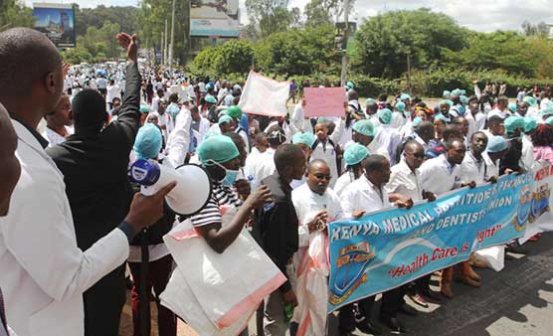×
The Standard e-Paper
Join Thousands Daily

The public health crisis has taken a dangerous turn. Judge Hellen Wasilwa’s emotionally delivered judgement this week effectively criminalised the national executive of the Kenya Medical Practitioners, Pharmacists and Dentist Union for representing the 5,000 strong membership.